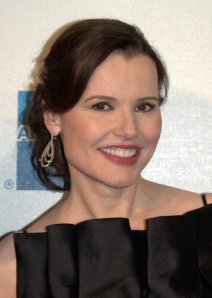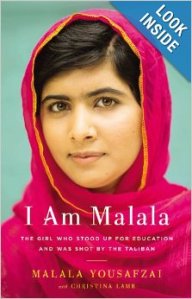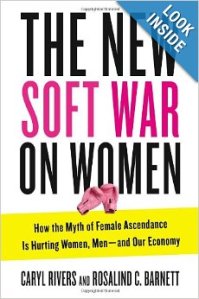Enjoy this homage to Robert Palmer’s “Simply Irresistible,” which however “cool” and representative it was of the cultural moment, does boil down to a rather unironic feat of objectification.
Enjoy this homage to Robert Palmer’s “Simply Irresistible,” which however “cool” and representative it was of the cultural moment, does boil down to a rather unironic feat of objectification.
Last night the new season of Game of Thrones premiered. And while there are rapist, murders, etc. in the story (really the list is rather long), the character of fourteen year old Sansa Stark gets constant hate.

You don't have to like the character Sansa, but maybe you should take a moment to consider why you don't like her before you start complaining about how horrible she is.
In her article, "Why Sansa Stark is the Strongest Character on 'Game of Thrones'" Julianne Ross writes how this hatred is because Sansa makes these mistakes while still acting like a girl.
She adds:
"The female characters we tend to applaud typically adhere to a particular formula for strength, one that breaks the patriarchal mold of how a woman should behave. This can be empowering, but the constant regurgitation of this one type of "strong female character" limits the kind of women we value on screen and dismisses the merits of those who prove themselves in a different way. Male characters aren't confined by the same standards, and more stereotypically "feminine" traits like patience, kindness and adaptability shouldn't be seen as inherently lesser than more "masculine" ones like physical strength or the ability to lead an army into battle."
It's an analysis that applies towards many typically feminine characters that are so frequently hated in movies or television shows. So for those of you who hate Sansa Stark, read through this article first before you make up your mind about her.
Geena Davis received a Lifetime Achievement Award from the Howard Gotlieb Archival Research Center at Boston University and the Bette Davis Foundation last Friday evening, March 28. The ceremony marked the opening of “Geena Davis: Actress and Advocate,” an archival exhibit detailing Davis’ Academy-award winning career in film, as well as her advocacy for equal gender representation in media.
Davis, 58, graduated from Boston University’s College of Fine Arts in 1979 to pursue acting. She won an Oscar for Best Actress ten years later for her role in “The Accidental Tourist.” She is also known for her work in “Beetlejuice,” “A League of Their Own,” “Stuart Little,” and was nominated for another Academy Award in 1992 for her character in “Thelma and Louise.”
“I always wanted to play characters who were in charge of their own fate,” said Davis in a press conference at the event. “When [“Thelma and Louise”] garnered such a big reaction from women it made me think much more consciously about what the women in the audience would think about my characters.”
Davis started the Geena Davis Institute on Gender in Media in 2004 after watching family movies with her daughter, who’s now twelve, and noticing a severe under-representation of female characters. The non-profit research entity studies gender representation in film and television, particularly media aimed at young audiences. It works to reduce stereotypes of women by bringing attention to disparities in family films. Research from the last decade showed fewer than 1/3 characters in family films are female, and more than 95% of C-suite characters are male.
“I think it’s incredibly important, the images of women that we see,” said Davis. “If we’re showing kids female characters that are stereotyped, sidelined, or highly sexualized or not even there, we’re sending a message to kids. It’s basically saying that women and girls aren’t as important as boys.”
The institute is now the leading source of research on gender depictions in media. In 2013, it partnered with the United Nations Entity for Gender Equality for a global study that will be presented at the Second Global Symposium on Gender in Media in the Fall of 2014.
“The ratio of male to female characters in film has been exactly the same since 1946… things just haven’t changed,” said Davis. “I’m hoping that finally this last year where “Hunger Games” was number one and “Frozen” was number four, we actually might get some momentum.”
I’ll start off with the disclaimer that I have never actually seen an episode Girls. Currently, it is in the long list of shows I will one day get to.
However the show, and Lena Dunham in particular, seems to constantly come up in discussion of feminism and representation of women so perhaps I’ll get around to watching it sooner.
Recently there was some controversy over the question that The Wrap reporter Tim Molloy asked during the Television Critics Association winter press tour for the show.
The conversation being discussed goes as follows:
Molloy: “I don’t get the purpose of all of the nudity on the show, by you particularly, and I feel like I’m walking into a trap where you go, ‘Nobody complains about the nudity on Game of Thrones,’ but I get why they are doing it. They are doing it to be salacious and, you know, titillate people. And your character is often naked just at random times for no reason.”
Dunham: “It’s because it’s a realistic expression of what it’s like to be alive, I think, and I totally get it. If you are not into me, that’s your problem, and you are going to have to kind of work that out with whatever professionals you’ve hired.”
via Buzzfeed
With the third season just being about to start, it makes sense that the show’s panel would be sick of getting asked questions like this.
But whether you watch the show or not, for a more elaborate response to Molloy and why female nudity can be powerful, and should be shown more frequently, I recommend going to this article: 6 Reasons Female Nudity Can Be Powerful
Check out the top ten feminist books of 2013 according to the Amelia Bloomer Project, a part of the American Library Association whose goal is to create an annual book list of the best feminist books for those eighteen and under.
Look through the list and see if you agree: Top Ten Books of 2013
(via Bitch Magazine)

When: this Thursday January 30th, at 4:00

Where: COM room #209
What: Book signing and discussion of Caryl Rivers and Rosalind C. Barnett's new book, The New Soft War on Women: How the Myth of Female Ascendency is Hurting Women, Men and Our Economy
Book Description:
For the first time in history, women make up half the educated labor force and are earning the majority of advanced degrees. It should be the best time ever for women, and yet... it’s not. Storm clouds are gathering, and the worst thing is that most women don’t have a clue what could be coming. In large part this is because the message they’re being fed is that they now have it made. But do they?
In The New Soft War on Women, respected experts on gender issues and the psychology of women Caryl Rivers and Rosalind C. Barnett argue that an insidious war of subtle biases and barriers is being waged that continues to marginalize women. Although women have made huge strides in recent years, these gains have not translated into money and influence.
Today marked the 41st anniversary of Roe vs. Wade (1973) a court case based in Texas where the Supreme Court made the decision that abortion was legal. Since this much controversy has continued to exists around the question of abortion, with the main two opposing groups being pro-choice and pro-life.
For more information on the court case and the evidence leading towards the Supreme Courts decision check out this article on PBS.

Over at The Chronicle Review, Geoffrey Pullman (of the Language Log, etc.) has a "Lingua Franca" column dealing with the objection of certain parties in the British House of Lords to the proposal to use gender-neutral language in the framing of future laws. He writes:
Lord Scott defended what The Cambridge Grammar of the English Language calls “purportedly sex-neutral he”: the old-fashioned notion that saying “anyone who thinks he deserves it” doesn’t exclude females. (Of course it does. There’s a reason why it sounds silly to say “You can bring either your father or your mother if he wants to come”—he simply cannot be understood as covering your mom.) [...]
The debate cried out for the professionals to be called in. And to my delight, as I read on in the Hansard record of the debate, I saw that they had one: Lord Quirk of Bloomsbury, a distinguished scholar of English grammar and usage, and a former vice chancellor of the University of London, was next to speak. [...]
Of purportedly sex-neutral he, “the convention that masculine pronouns are deemed to include feminine reference,” he said:
If it ever worked, that convention no longer does, and there have been convincing psycholinguistic experiments showing that sentences such as “Anyone parking his car here will be prosecuted” predominantly call up images of a man doing the illicit parking.
And he further noted a shockingly strong tendency in certain legislative amendments to stick entirely to purportedly sex-neutral he whenever the pronoun referred to a judge. (The high-level judiciary in Britain is almost entirely male.) [...]
A final stinger: Pullum notes in his last graf that each one of the "grammatically ignorant old sexist fools" who spoke in the debate was.... male.
Inset image from The Wall Street Journal 1/9/14.
Probably no man has ever troubled to imagine how strange his life would appear to himself if it were unrelentingly assessed in terms of his maleness; if everything he wore, said, or did had to be justified by reference to female approval […] If he gave an interview to a reporter, or performed any unusual exploit, he would find it recorded in such terms as these: ‘Professor Bract, although a distinguished botanist, is not in any way an unmanly man. He has, in fact, a wife and seven children. Tall and burly, the hands with which he handles his delicate specimens are as gnarled and powerful as those of a Canadian lumberjack, and when I swilled beer with him in his laboratory, he bawled his conclusions at me in a strong, gruff voice that implemented the promise of his swaggering moustache.
(Dorothy L. Sayers)
New ad focuses on women empowerment in response to men’s unwanted gaze. The lyrics in the background translate from Hindi to “look how you look when you’re looking at me.”
WOMEN EMPOWERMENT” is the need of the hour. On 16th December 2012, the horrific incident of Nirbhaya’s Rape Case not only shattered Nirbhaya’s family but every single Indian. This incident did trigger a sense of solidarity to stand up, fight against and do our best to eradicate such atrocities & gender inequality.
At Cinema100, 2013, a WWI Initiative to commemorate the completion of 100 years of Indian Cinema, we commissioned our Alumni Ketan Rana to make an ad on Woman Empowerment.
Watch the video & Spread the awareness to Think, Reflect & Act! X
When the Nirbhaya Rape Case took place last year , Indian government statistics showed that a woman is raped every 22 minutes on average [X]. Since the attack women have become more vocal on speaking out against their attackers. However, society still needs to focus on the wrong way women are frequently treated in society as this Ad addresses.
via Buzzfeed